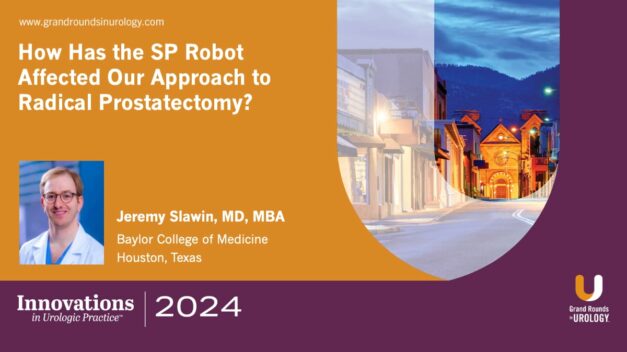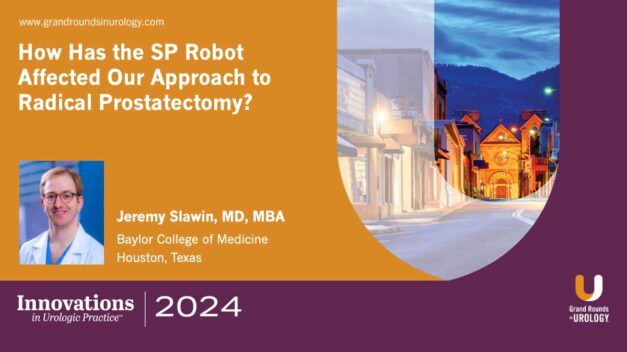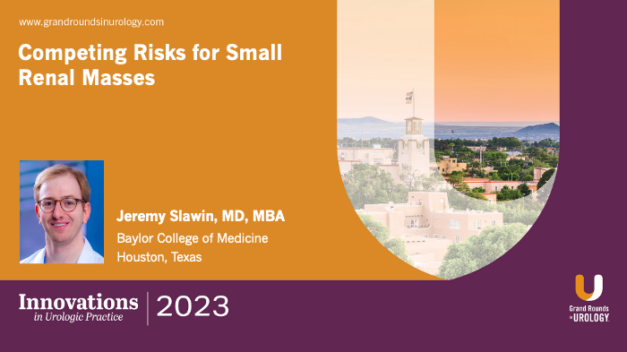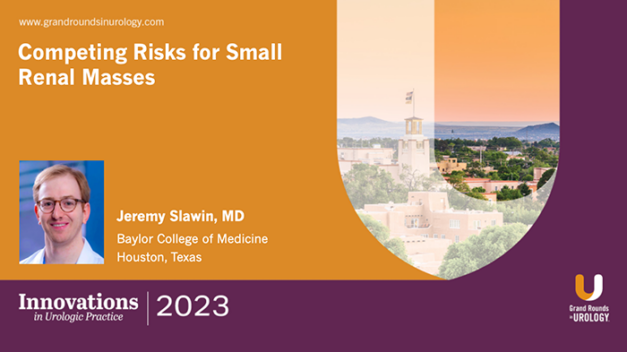How Has the SP Robot Affected Our Approach to Radical Prostatectomy?
Jeremy Slawin, MD, MBA, highlights the impact of single-port robotic technology on radical prostatectomy, emphasizing its shift from a traditional multiport, transperitoneal approach to a renewed focus on extra-peritoneal surgery.
In this 21-minute presentation, Slawin explores the evolution of prostatectomy techniques, contrasting the older extra-peritoneal open surgeries with the recent dominance of transperitoneal, multiport robotic procedures driven by advancements in minimally invasive technology. With the advent of the single-port robotic platform, surgeons are revisiting extra-peritoneal approaches.
Dr. Slawin reviews the steps for the SP robotic procedure, pointing out benefits and differences from more traditional procedures. The single-port approach allows all instruments to be introduced through a single cannula, facilitating operations in confined spaces. Slawin shares a video of the process, helping to illustrate these steps and addressing possible questions.
Early outcomes from comparative studies indicate similar surgical margin and continence rates between single-port and multiport approaches. However, there is a trend towards reduced pain, lower opioid usage, and shorter hospital stays with single-port extra-peritoneal surgeries. The challenges include a learning curve, reduced lymph node yields, and the need for technical adjustments, particularly due to arm interdependence and limited instrument strength.
Read More




